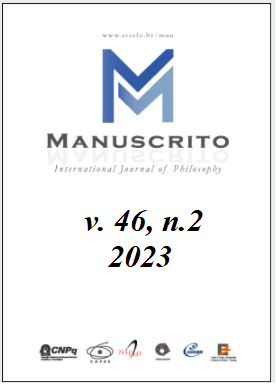Abstract
Quasi-truth (a.k.a. pragmatic truth or partial truth) is typically advanced as a framework accounting for incompleteness and uncertainty in the actual practices of science. Also, it is said to be useful for accommodating cases of inconsistency in science without leading to triviality. In this paper, we argue that the formalism available does not deliver all that is promised. We examine the standard account of quasi-truth in the literature, advanced by da Costa and collaborators in many places, and argue that it cannot legitimately account for incompleteness in science. We shall claim that it conflates paraconsistency and paracompleteness. It also cannot properly account for inconsistencies, because no direct contradiction of the form S ∧ ¬S can be quasi-true according to the framework; contradictions simply have no place in the formalism. Finally, we advance an alternative interpretation of the formalism in terms of dealing with distinct contexts where incompatible information is dealt with. This does not save the original program, but seems to make better sense of the apparatus.
References
ARENHART, J. R. B. (2016) “Paraconsistent Contradiction in Context”. In: Saberes, special issue, pp. 5-17, 2016.
BALZER, W., MOULINES, C. U., AND SNEED, J. D. An Architectonic for Science. Synthese Library vol.186. Dordrecht: Reidel, 1987.
BÉZIAU, J. Y. “S5 is a paraconsistent logic and so is first-order classical logic”. In: Logical Investigations, 9, pp. 301-9, 2002.
BROWN, B. “How to be Realistic About Inconsistency in Science”. In: Studies in History and Philosophy of Science, 21, pp.281-94, 1990.
BROWN, B., AND PRIEST, G. “Chunk and Permeate, a Paraconsistent Inference Strategy. Part 1: the Infinitesimal Calculus”. In: Journal of Philosophical Logic, 33(4), pp. 379-88, 2004.
BUENO. O. “Truth, Quasi-Truth and Paraconsistency”. In: Contemporary Mathematics, 39, pp. 275-93, 1999.
BUENO, O., AND DA COSTA, N. C. A. “Quasi-Truth, Paraconsistency, and the Foundations of Science”. In: Synthese, 154, pp. 383-99, 2007.
CARNIELLI, W., AND RODRIGUES, A. “An Epistemic Approach to Paraconsistency: a Logic of Evidence and Truth”. In: Synthese, 196(9), pp. 3789-13, 2019.
DA COSTA, N. C. A. O Conhecimento Científico (in Portuguese). São Paulo: Discurso Editorial, 1999.
DA COSTA, N. C. A. AND FRENCH, S. Science and Partial Truth: A Unitary Approach to Models and Scientific Reasoning. Oxford: Oxford University Press, 2003.
DA COSTA, N. C. A. AND KRAUSE, D. “The logic of complementarity”. In: J. van Benthem, G. Heinzmann, M. Rebushi and H. Visser (eds.), The Age of Alternative Logics: Assessing Philosophy of Logic and Mathematics Today, pp. 103-120. Cham: Springer, 2006.
DA COSTA, N. C. A. AND KRAUSE, D. “Physics, Inconsistency, and Quasi-truth”. In: Synthese, 191(13), pp. 3041-55, 2014.
DA COSTA, N. C. A., BUENO, O. AND FRENCH, S. In: “The logic of pragmatic truth”. In: Journal of Philosophical Logic, 27, pp. 603-20, 1998.
DUNN, J. M. “Partiality and its dual”. In: Studia Logica, 66, pp. 5-40, 2000.
FRAENKEL, A. A., BAR-HILLEL, Y., AND LEVY, A. Foundations of Set Theory. Amsterdam: North-Holland, 1984.
FRIEND, M., AND MARTÍNEZ-ORDAZ, M. DEL R. “Keeping Globally Inconsistent Theories Locally Consistent”. In: W. Carnielli, and J. Malinowski (eds.) Contradictions, from Consistency to Inconsistency, pp.53-88. Cham: Springer , 2018.
KRAUSE, D., ARENHART, J. R. B. The Logical Foundations of Scientific Theories. Languages, Structures and Models. New York: Routledge, 2017.
MEHEUS, J. (ed.) Inconsistency in Science. Dordrecht: Springer, 2002.
MIKENBERG, I., DA COSTA, N. C. A., AND CHUAQUI, R. “Pragmatic Truth and Approximation to Truth”. In: Journal of Symbolic Logic, 51, pp. 201-21, 1986.
MORRISON, M. “One phenomenon, many models: inconsistency and complementarity”. In: Studies in History and Philosophy of Science, 42, pp. 342-51, 2011.
OMORI, H., AND WANSING, H. “40 years of FDE: an introductory overview”. In: Studia Logica, 105(6), pp. 1021-49, 2017.
OMORI, H., AND ARENHART, J. R. B. “A Generalization of Ordered-Pair Semantics”. In: S. Gosh, T. Icar. (eds.) Lecture Notes in Computer Science, pp. 149-57. 1ed. Cham: Springer International Publishing, 2021.
OMORI, H., AND ARENHART, J. R. B. “Haack meets Herzberger and Priest”. In: 2022 IEEE 52nd International Symposium on MultipleValued Logic (IS-MVL), 2022, Dallas, pp. 137-44. California: IEEE, 2022.
PRIEST, G. Doubt Truth to be a Liar. Oxford: Oxford Un. Press, 2006.
PRIEST, G. An Introduction to Non-Classical Logics. From If to Is. 2nd edition. Cambridge: Cambridge Un. Press, 2008.
VERDÉE, P., AND ANDREAS, H. (eds). Logical Studies of Paraconsistent Reasoning in Science and Mathematics. Cham: Springer , 2016.
WANSING, H. “One heresy and one orthodoxy: On dialetheism, dimathematism, and the non-normativity of logic”. In: Erkenntnis, online first, 2022.
WANSING, H. “Beyond Paraconsistency. A plea for a radical breach with the Aristotelean orthodoxy in logic”. Forthcoming in: A. Rodrigues, H. Antunes, and A. Freire (eds.) Outstanding Contributions to Logic: a volume for Walter Carnielli. Cham: Springer , 2023.
ZALTA, E. N. “Frege’s Theorem and Foundations for Arithmetic”. In: Edward N. Zalta (ed.) The Stanford Encyclopedia of Philosophy (Summer 2019 Edition), URL=https://plato.stanford.edu/archives/sum2019/entries/frege-theorem/

This work is licensed under a Creative Commons Attribution-NonCommercial 4.0 International License.
Copyright (c) 2023 Manuscrito: International Journal of Philosophy


